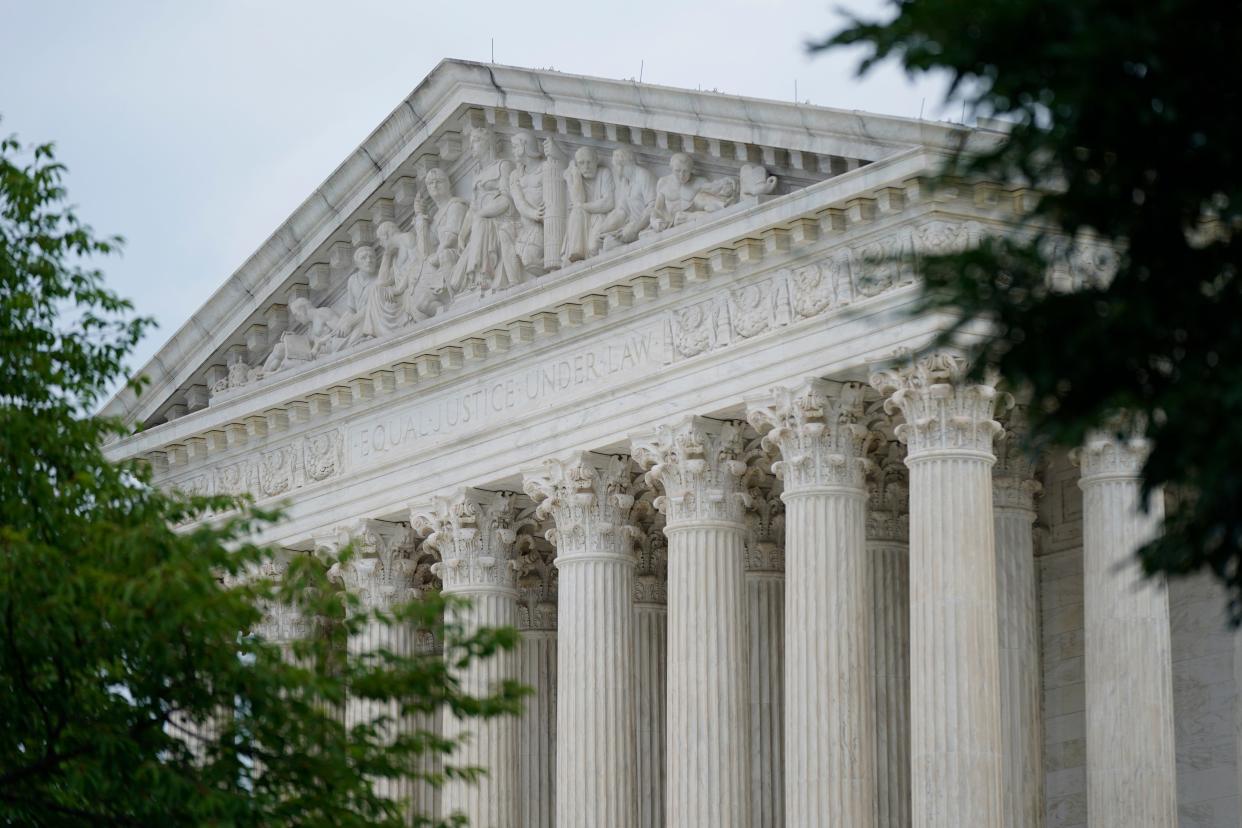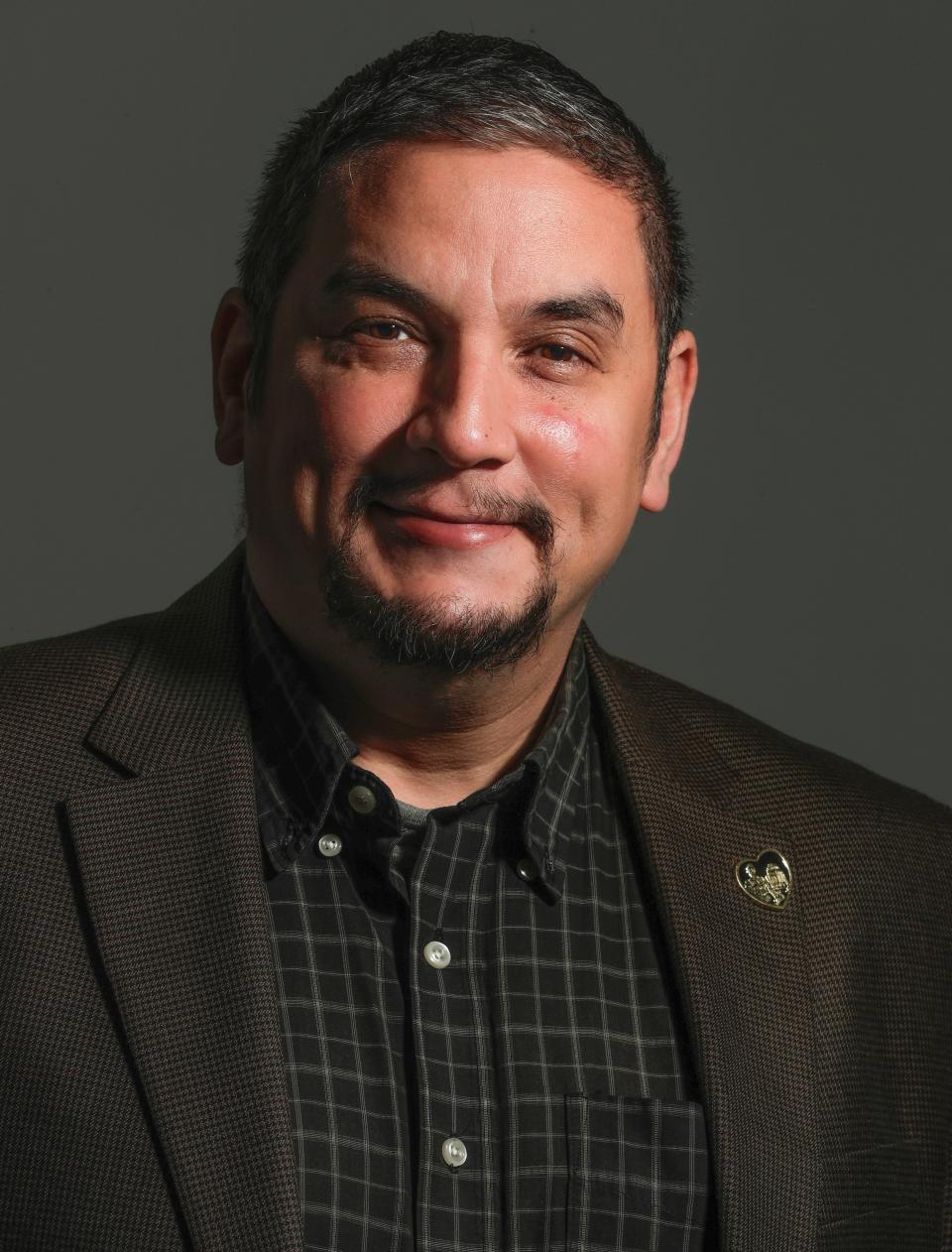Tribal leaders in Wisconsin worry about sovereignty after Supreme Court ruling: 'If they start there, they’re not going to stop.'

GREEN BAY - Some tribal officials in Wisconsin are concerned about a recent Supreme Court ruling that could pose a challenge to tribal sovereignty.
It is one of the latest decisions in a slew of recent controversial rulings from the nation’s highest court, such as over abortion, guns and religious liberty.
In Castro-Huerta v. Oklahoma, the Supreme Court sided with the state June 29 in a 5-4 ruling that state courts may hear cases involving non-Natives accused of crimes against Native Americans occurring on reservations rather than only being handled by federal courts.
“If they start there, they’re not going to stop,” said John Johnson, president of the Lac du Flambeau Ojibwe Nation in Wisconsin, about the ruling. “They’re going to keep trying to chip away at tribal sovereignty. … What’s next?”
The case stemmed from a 2015 hearing in which Oklahoma state authorities charged Victor Manuel-Castro-Huerta with neglecting his 5-year-old stepdaughter, who is a citizen of the Eastern Band of Cherokee Indians.
An Oklahoma appeals court threw out the conviction because the suspected crime occurred on Native American territory, where state courts did not have jurisdiction.
Justice Brett Kavanaugh wrote the majority opinion, stating that “Indian Country is part of a state, not separate from a state.”
Justice Neil Gorsuch wrote the dissent, stating: “Tribes are not private organizations within state boundaries. Their reservation are not glorified private campground. … Tribal sovereignty means that the criminal laws of the states ‘can have no force’ on tribal members within tribal bounds unless and until Congress clearly ordains otherwise.”
Christopher Boyd, chairman of the Red Cliff Ojibwe Nation in Wisconsin, said there was no consultation with tribal nations in the Supreme Court decision.
“This is a direct threat against our tribal governments,” he said.

Sign up for the First Nations Wisconsin newsletter Click here to get all of our Indigenous news coverage right in your inbox
Boyd said the attorney generals of many Indigenous nations have been meeting with the National Congress of American Indians to develop a strategy to address the court decision.
Oneida Nation officials haven’t expressed too much concern over the latest Castro-Huerta decision because the state of Wisconsin already exercises criminal jurisdiction on the Oneida Reservation under Public Law 280.
Ten of 11 federally recognized tribal nations in Wisconsin fall under PL 280. The only Indigenous nation that does not fall under PL 280 is Menominee Nation, so the Supreme Court ruling could have the most direct impact there.
It was another Supreme Court decision — in 2020 — that played a part in a favorable ruling for the Oneida Nation against the village of Hobart.
Most of the village is located on the Oneida Reservation, and the tribe sued when village officials tried to require the tribe to apply for a permit to hold its Big Apple Fest.
A federal judge sided with Oneida Nation in that 2020 case and wrote that a U.S. Supreme Court ruling earlier that year had made Hobart’s case almost frivolous.
RELATED: Supreme Court sides with Oklahoma in battle over crimes on Native American territory
That Supreme Court ruling essentially stated much of the eastern half of Oklahoma can be considered tribal territory based on treaties. The judge in Oneida’s case ruled that the 1838 reservation established by treaty still exists.
Oneida Nation officials did release a statement on the Supreme Court’s recent decision that overturned Roe v. Wade because PL 280 would mean that any law Wisconsin passes regarding abortion would be enforced on the reservation.
“The Oneida Nation believes the Supreme Court’s decision … leads yet again to another forced policy regarding Indigenous peoples’ right to govern our own affairs and people, especially in states where tribes are forced to comply with criminal consequences set by states that relate to individuals’ personal moral decision-making autonomy,” the statement read. “Decisions to address pregnancy are not always easy, especially when the future health and welfare of an infant or mother is at stake. A woman deserves the right to make her own healthcare decisions.”
Frank Vaisvilas is a Report For America corps member based at the Green Bay Press-Gazette covering Native American issues in Wisconsin. He can be reached at 815-260-2262 or fvaisvilas@gannett.com, or on Twitter at @vaisvilas_frank. Please consider supporting journalism that informs our democracy with a tax-deductible gift to this reporting effort at GreenBayPressGazette.com/RFA.
This article originally appeared on Green Bay Press-Gazette: Supreme Court ruling has tribal leaders worried about sovereignty

